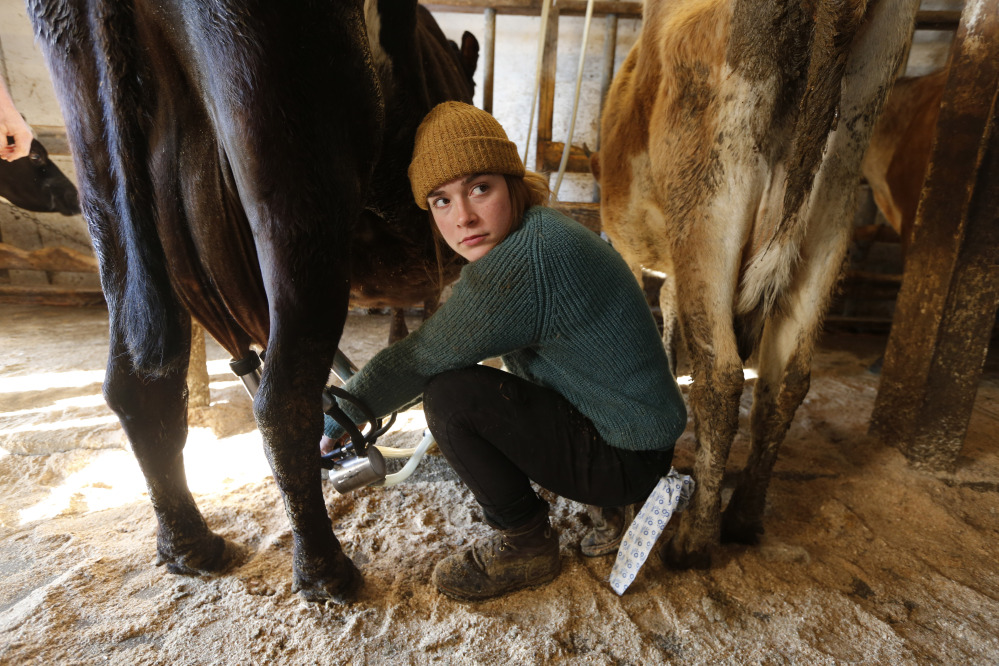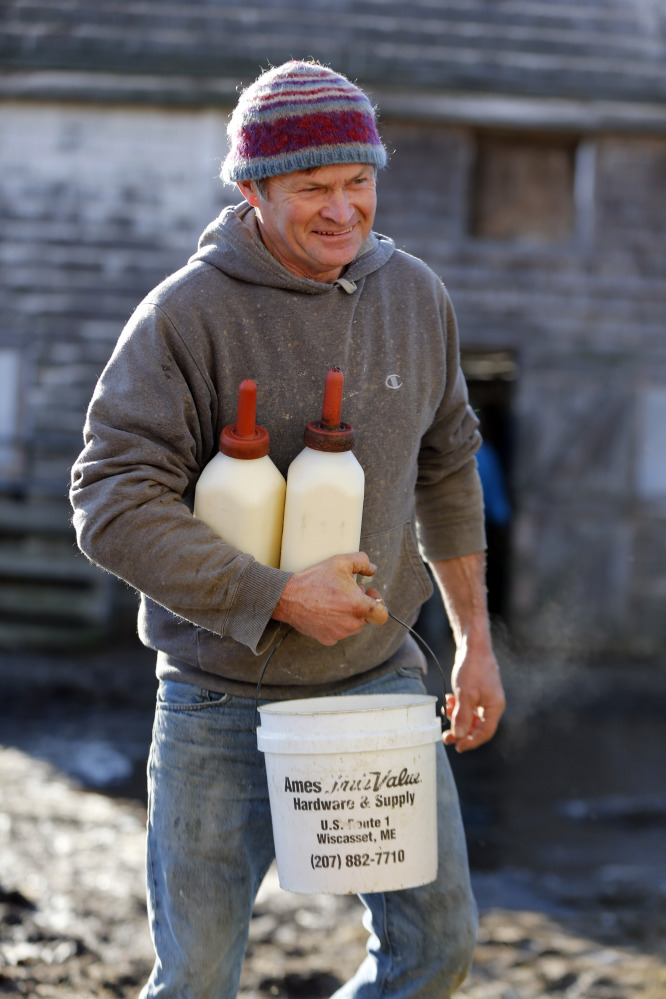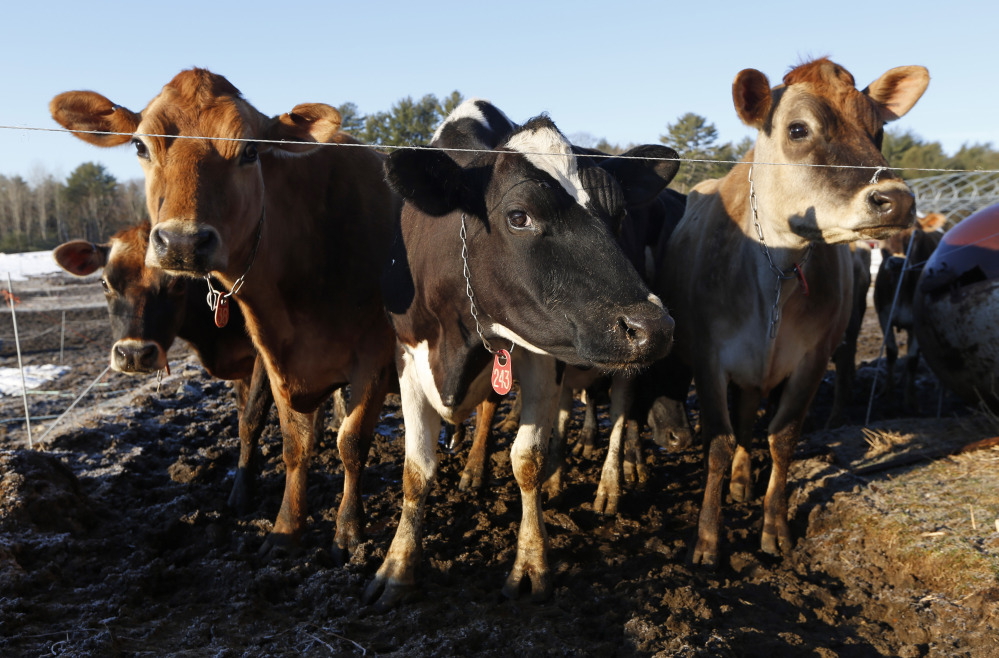NEWCASTLE — Lee Straw has spent most of his 59 years on farms and is a firm believer in the health benefits of raw milk, but he believes a Maine bill that would allow farmers to sell unpasteurized product without a license is going too far.
“Small producers say they know their customers, which is a valid point,” Straw said while attaching pipelines to the udders of a half-ton Jersey milk cow. “But a lot of customers might not know particulars of sanitation that an inspector might.”
Straw, who runs Straw Farm in Newcastle, is among dozens of Maine dairy farmers who are divided over a potential State House vote this coming week on a proposal that could ease restrictions on raw milk sales. At issue is whether dairy farmers should be allowed to sell raw milk directly to consumers without a license.
The legislation is among a wave of bills to expand or legalize raw milk sales or consumption – at least 28 bills in 18 states, according to the National Conference of State Legislatures. Proponents of raw milk, which is milk that has not been pasteurized or homogenized, say it contains vitamins and beneficial bacteria that are destroyed by pasteurization. The federal Centers for Disease Control and Prevention maintain there are no health benefits from raw milk that cannot be more safely gained from pasteurized milk.
State Rep. William Noon proposed Maine’s bill, which he said is intended to help “the small people that are starting out that don’t have the cash to get licensed.” The bill would only apply to farmers who sell to consumers at their farm and it would require the farmers to take a sanitation course and prohibit them from advertising in any manner. The bill might come up for a vote in the House of Representatives as soon as this week, Noon said.
Larry Perron, of Morrill Farm in Sumner, said the future of his 200-year-old farm could hinge on the vote. He said he’ll hand the keys to the dairy end of the farm over to his grandchildren if the bill passes, but otherwise, he’s had enough of inspectors and government intrusion.
“If they said we didn’t need licensing, inspections, I would help my grandchildren to get into it more,” Perron said. “I just don’t like to be told what to do by some educated people who have never done it.”
The debate over the bill is the latest in a series of squabbles over the regulations of raw milk in Maine and around the country. In one highly publicized case, a Blue Hill farmer who wanted the right to sell raw milk without being forced to spend thousands on upgrades to get a state license lost his appeal to the state’s highest court last year.
Thirty states allow sales of raw milk, with a variety of different restrictions, according to the National Association of State Departments of Agriculture. Debates about regulations have raged recently in states including Illinois, West Virginia and South Dakota. Meanwhile, the federal Centers for Disease Control and Prevention says the number of disease outbreaks from unpasteurized milk has increased, from 30 between 2007 and 2009 to 51 between 2010 and 2012.
LAWMAKERS LESS THAN RECEPTIVE
Some Maine legislators have been less than receptive to easing the state’s restrictions. Indeed, the Committee on Agriculture, Conservation and Forestry voted 7-6 to recommend that the law changes not pass. A different lawmaker submitted another, broader raw milk bill based on New Hampshire’s law. That proposal died in committee last month.
But Ronald Dyer, the director of quality assurance and regulations at the state Department of Agriculture, Conservation and Forestry, has testified in support of the bill. The Maine Organic Farmers and Gardeners Association also supports the bill. Noon said he hopes the agriculture department continues to push for the change.
“The department should take the initiative as they support this bill,” Noon said.
The debate comes as raw milk production is on the rise in Maine, Dyer said. The state licenses about 100 small raw milk producers, up from about 15 seven years ago, he said. The state has a total of about 250 total cow’s milk producers, which includes some of the 100 raw milk producers – some of the 100 only produce raw goat milk, Dyer said.
“We have concerns about selling anything to the public that’s not tested,” Dyer said. “We were interested in finding a way that it could be done with disclosure to the consumer.”
Send questions/comments to the editors.





Comments are no longer available on this story